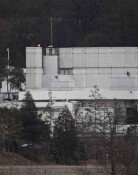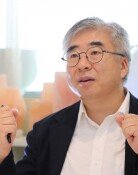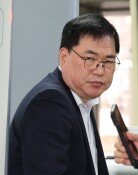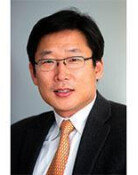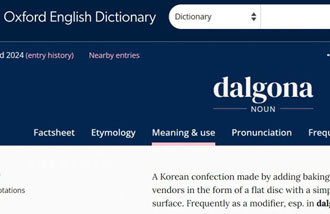Gov’t decides to speed up renewable energy development by banking on KEPCO
Gov’t decides to speed up renewable energy development by banking on KEPCO
Posted August. 22, 2017 08:20,
Updated August. 22, 2017 08:54
The government has decided to allow Korea Electric Power Corporation (KEPCO), Korea’s largest public company, to engage in the new renewable energy business in an effort to increase the share of renewable energy in the nation’s power production by 20 percent by 2030. KEPCO can now take part in Korea’s electric generation after 16 years since its power plants were split up into Korea Hydro & Nuclear Power, Korea South-East Power Co. and four other subsidiaries in 2001 under the electric power industry restructuring scheme of the Kim Dae-jung administration.
According to energy-related government agencies on Monday, the Ministry of Trade, Industry and Energy decided to allow KEPCO to conduct power generation activities for new renewable energy and began to review related laws and regulations for revision. Currently, KEPCO is in charge of electricity purchase and activities relating to access system, such as electric transmission and distribution, and cannot produce and sell electricity directly under Electric Utility Act. Hence, the company purchases power generated by its subsidiaries and some independent power producers and supplies power to households and companies.
The reason that the ministry determined to allow KEPCO to enter into the power generation market again was to keep President Moon’s election pledge. During his campaign, the president promised to increase the share of new renewable energy in power generation of Korea by 20 percent by 2030. The government has been encouraging KEPCO subsidiaries and private companies to be engaged in renewable energy project up, but the results are yet insignificant. The share of electricity from renewable energy sources was 3.6 percent in 2016 and increased by only 1 percentage point from 2.6 percent in 2010.
The government had banned power generation of KEPCO until early this year for fear that the company could hold a monopoly in Korea’s electricity market. Thus, some argue that the government hastily pushes for business expansion of the public company to keep the president’s campaign promise without thoroughly reviewing the impact on the entire electricity market.
Gun-Huk Lee gun@donga.com
Headline News
- Pyongyang test-fires new hypersonic IRBM with longest flight range
- NVIDIA CEO: ‘ChatGPT moment for general robotics just around the corner’
- President security service chief refuses second summons
- NVIDIA CEO: ‘ChatGPT moment for general robotics just around the corner’
- N. Korea fires intermediate-range ballistic missile



